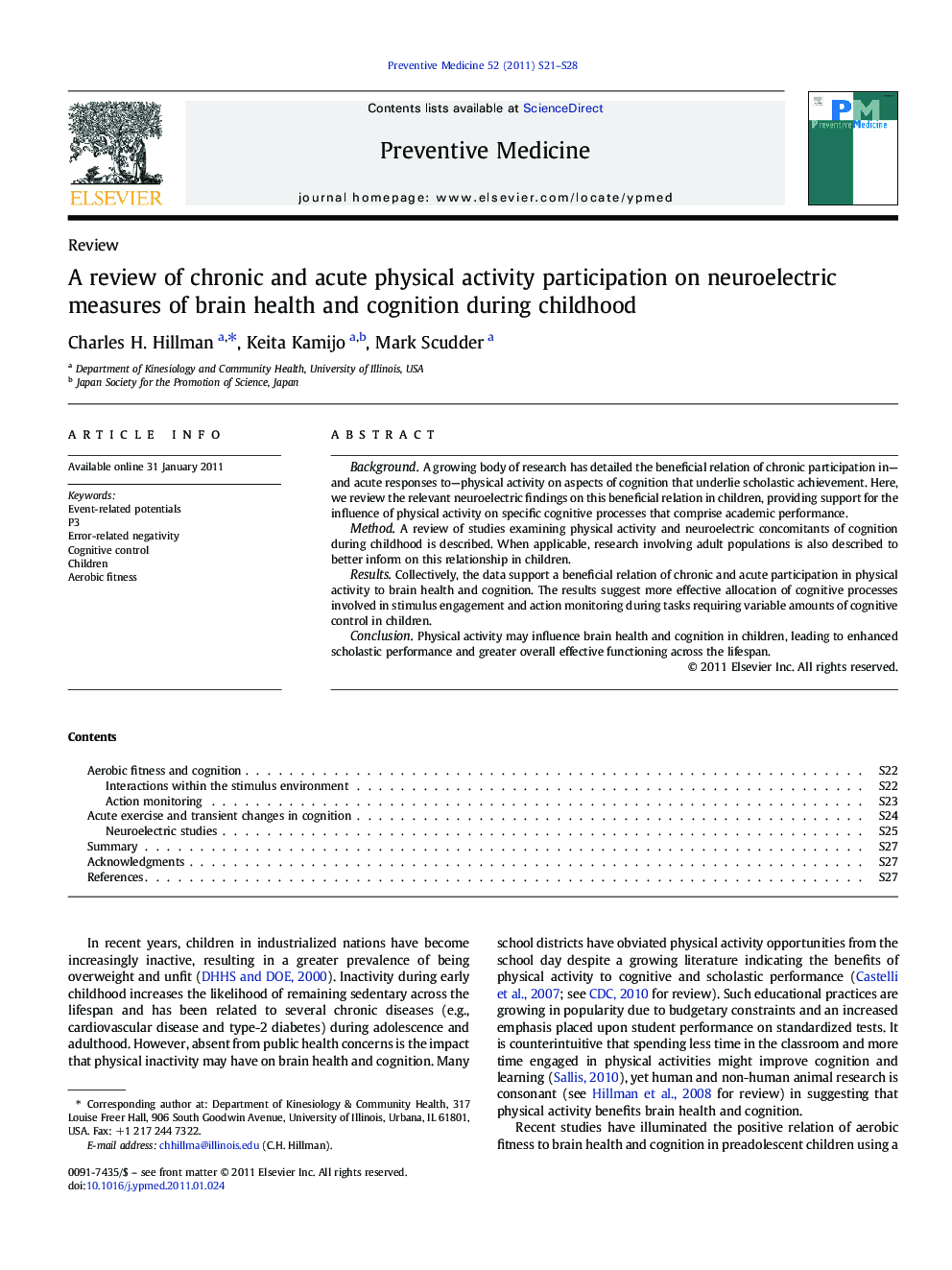| Article ID | Journal | Published Year | Pages | File Type |
|---|---|---|---|---|
| 3101074 | Preventive Medicine | 2011 | 8 Pages |
BackgroundA growing body of research has detailed the beneficial relation of chronic participation in—and acute responses to—physical activity on aspects of cognition that underlie scholastic achievement. Here, we review the relevant neuroelectric findings on this beneficial relation in children, providing support for the influence of physical activity on specific cognitive processes that comprise academic performance.MethodA review of studies examining physical activity and neuroelectric concomitants of cognition during childhood is described. When applicable, research involving adult populations is also described to better inform on this relationship in children.ResultsCollectively, the data support a beneficial relation of chronic and acute participation in physical activity to brain health and cognition. The results suggest more effective allocation of cognitive processes involved in stimulus engagement and action monitoring during tasks requiring variable amounts of cognitive control in children.ConclusionPhysical activity may influence brain health and cognition in children, leading to enhanced scholastic performance and greater overall effective functioning across the lifespan.
